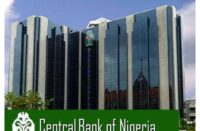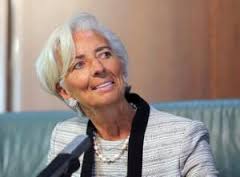By Peter OBIORA InvestAdvocate
Lagos (INVESTADVOCATE)-Christine Lagarde, the managing director (MD) of the International Monetary Fund (IMF) on Thursday said the global lender is ready to loan Nigeria and Azerbaijan if the request is made.
“The IMF remains available to all its members; so the moment we are asked to help, we will do our best we can to help,” Lagarde said during an online press conference from Washington.
According to her, both countries Azerbajan and Nigeria had been hit by the oil price decline shock because their economies depend heavily on oil export both in terms trade and revenue. “When you lose a lot of that because the price decline was about 70 percent, then clearly it put the economy on shock.” Lagarde said.
She affirmed that policies adopted by both nations are different, for Azerbaijan, they are taking a good fiscal approach, reassessing spending and using the Exchange rate as a buffer.
“Azerbajan said to me it’s taking a good fiscal approach, its reassessing spending, it’s really trying to restore its position and it’s also using the Exchange rate as a buffer,” the IMF Boss added.
She said Nigeria is not yet and needed to identify her fiscal resources, remove oil subsidy and put in place a sensible exchange rate policy.
“Nigeria is not there and we certainly hope that in terms of identification of fiscal resources, removal of oil subsidies and an exchange rate policy that is sensible in the sense that it is not going to waste reserves, we have particularly indicated that persistent pegging of the naira would not be such a good idea; so they have to adopt their policies and adopt their model and if they need IMF’s help, we will be ready to help, no question about that and no stigma associated with it,” she added.
The IMF MD noted that Nigeria and Azerbaijan are clearly a victim of an external shock and have to face a response which is a national response to their situations.
Nigeria’s economy is expected to grow by 3.78 percent in 2016 from 2.97 percent recorded in 2015, an increase of less than 100 basis points, according to a latest report from the National Bureau of Statistics (NBS).
“Beyond 2016 however, growth is expected to jumpstart averaging 5.41 percent yearly between 2017 and 2019 as infrastructure developments take shape and provide support for both the oil and non-oil sectors.
NBS says while upward pressure on inflation is expected, meaning that the Headline index may rise from 9.55 percent to 10.16 percent in 2016, rates are expected to moderate beyond this period and average 9.01 percent between 2017 and 2019.
President Muhammadu Buhari had proposed a N6.1 trillion budget based on $38 per barrel of oil and expects the economy to expand 4.4 percent.
Kemi Adeosun, finance minister had said Nigeria is facing an estimated $15 billion budget deficit in 2016 and disclosed that the nation is looking to borrow as much as $5 billion and has held discussions with the World Bank, African Development Bank and China’s Export-Import Bank due to their “concessionary rates of interest.”







